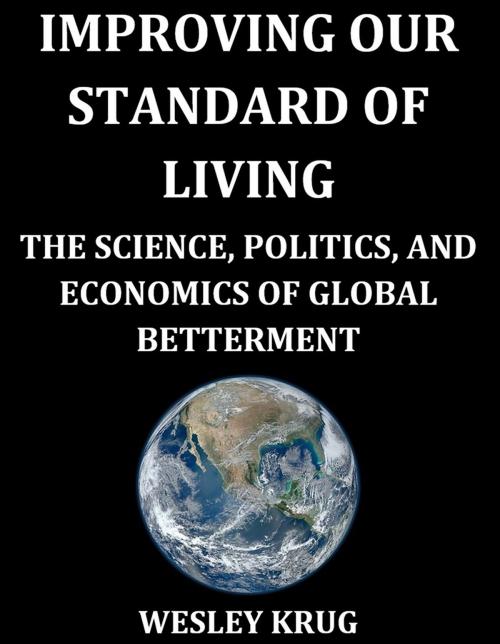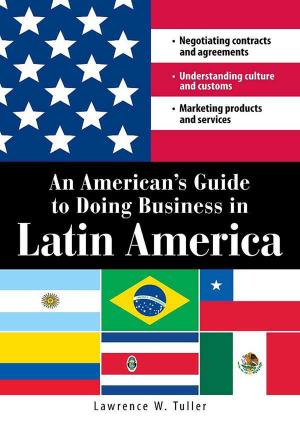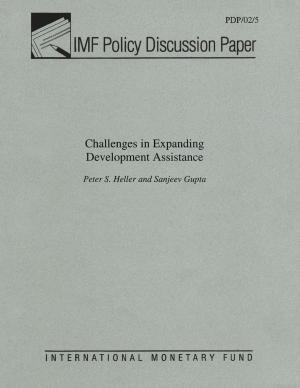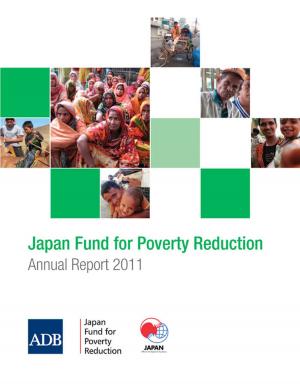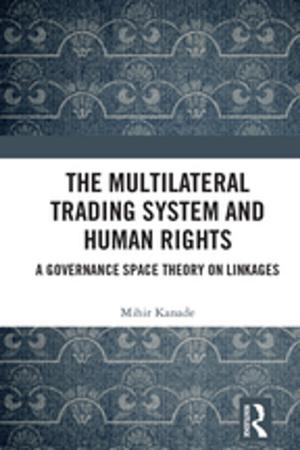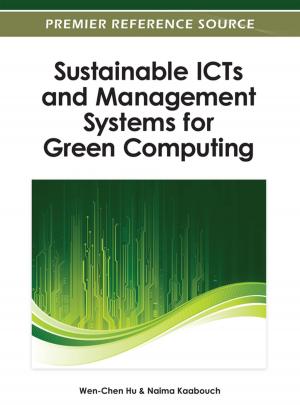Improving Our Standard of Living: The Science, Politics, and Economics of Global Betterment
Nonfiction, Social & Cultural Studies, Political Science, Government, Democracy, Business & Finance, Economics| Author: | Wesley Krug | ISBN: | 9781310037580 |
| Publisher: | Wesley Krug | Publication: | July 4, 2016 |
| Imprint: | Smashwords Edition | Language: | English |
| Author: | Wesley Krug |
| ISBN: | 9781310037580 |
| Publisher: | Wesley Krug |
| Publication: | July 4, 2016 |
| Imprint: | Smashwords Edition |
| Language: | English |
This book is about how to reduce poverty and improve global living standards. Topics include economic growth, income inequality, poverty, corruption, causes of the decline of the middle class, sustainable development, emerging technologies, and more. This isn't a textbook, and there is no specific target audience. This is for anyone who cares about solving the world's problems.
Below is a list of questions answered throughout.
Which nations have the best living standards? What are they doing right?
Why do rich countries still have so many poor people in them?
What caused the decline of the middle class in some nations like the US and UK, but not in others like Switzerland and the Nordic countries? What can we do about it?
Has capitalism failed? Or have we become more socialist? Are those terms meaningless?
Is the government too big? Or not big enough?
Is libertarianism a good or bad idea?
Why are several industries dominated by a handful of corporations? How do we solve that problem?
Why are prescription medications so expensive? How do we bring costs down?
Do we need more regulations on businesses? Or less?
Should nations be more open to free trade? Or should they be self-sufficient?
Has globalization helped or hurt the average person?
Does economic growth really improve living standards?
How much wealth is enough?
Do we need the stock market?
Do we need money? Or could we allocate resources differently?
What causes inflation? Does it matter?
Is a gold standard superior or inferior to a fiat (paper) monetary system?
Why is our tax system so complicated and full of loopholes? What can we do about it?
Is taxation a form of theft?
Should we raise taxes on the rich?
How much should nations spend on welfare?
How can we reduce unemployment and create decent paying jobs for everyone?
Should we have more government jobs or private sector jobs?
Should we have a shorter workweek?
Why is economic growth slowing? What can we do about it?
How do we reduce income inequality without hurting the economy?
How do we efficiently provide healthcare to everyone?
How high should the minimum wage be? Should we replace it with something else?
What is a universal basic income guarantee? Would it work?
Can we grow the economy without harming the environment?
How do we speed up the transition to renewable energy?
How do we grow food sustainably?
What do we do about dwindling resources and scarcity?
How do we address overpopulation?
Are central banks helping or hurting the global economy?
Does religion help or hurt national living standards?
Is immigration good or bad?
How do we reduce crime and terrorism?
How high can the debt go?
How do we balance the budget? Do we need to?
How do we end corruption in government?
Is the world getting better or worse?
Are we on the verge of a technological singularity?
Will robots take our jobs?
What is the future of cryptocurrencies like bitcoin?
Can we cure aging? Should we?
How do we fix the world and achieve happiness?
This book was updated on March 30, 2017.
This book is about how to reduce poverty and improve global living standards. Topics include economic growth, income inequality, poverty, corruption, causes of the decline of the middle class, sustainable development, emerging technologies, and more. This isn't a textbook, and there is no specific target audience. This is for anyone who cares about solving the world's problems.
Below is a list of questions answered throughout.
Which nations have the best living standards? What are they doing right?
Why do rich countries still have so many poor people in them?
What caused the decline of the middle class in some nations like the US and UK, but not in others like Switzerland and the Nordic countries? What can we do about it?
Has capitalism failed? Or have we become more socialist? Are those terms meaningless?
Is the government too big? Or not big enough?
Is libertarianism a good or bad idea?
Why are several industries dominated by a handful of corporations? How do we solve that problem?
Why are prescription medications so expensive? How do we bring costs down?
Do we need more regulations on businesses? Or less?
Should nations be more open to free trade? Or should they be self-sufficient?
Has globalization helped or hurt the average person?
Does economic growth really improve living standards?
How much wealth is enough?
Do we need the stock market?
Do we need money? Or could we allocate resources differently?
What causes inflation? Does it matter?
Is a gold standard superior or inferior to a fiat (paper) monetary system?
Why is our tax system so complicated and full of loopholes? What can we do about it?
Is taxation a form of theft?
Should we raise taxes on the rich?
How much should nations spend on welfare?
How can we reduce unemployment and create decent paying jobs for everyone?
Should we have more government jobs or private sector jobs?
Should we have a shorter workweek?
Why is economic growth slowing? What can we do about it?
How do we reduce income inequality without hurting the economy?
How do we efficiently provide healthcare to everyone?
How high should the minimum wage be? Should we replace it with something else?
What is a universal basic income guarantee? Would it work?
Can we grow the economy without harming the environment?
How do we speed up the transition to renewable energy?
How do we grow food sustainably?
What do we do about dwindling resources and scarcity?
How do we address overpopulation?
Are central banks helping or hurting the global economy?
Does religion help or hurt national living standards?
Is immigration good or bad?
How do we reduce crime and terrorism?
How high can the debt go?
How do we balance the budget? Do we need to?
How do we end corruption in government?
Is the world getting better or worse?
Are we on the verge of a technological singularity?
Will robots take our jobs?
What is the future of cryptocurrencies like bitcoin?
Can we cure aging? Should we?
How do we fix the world and achieve happiness?
This book was updated on March 30, 2017.
